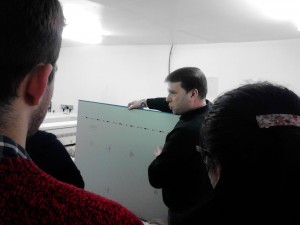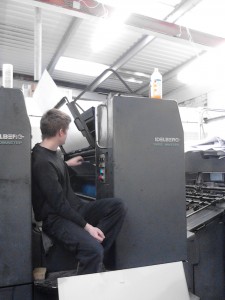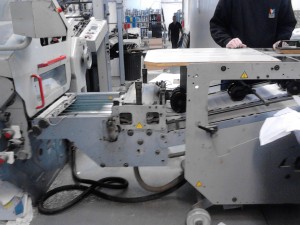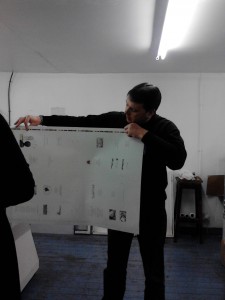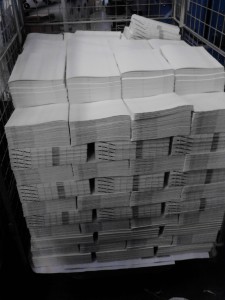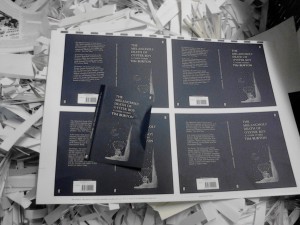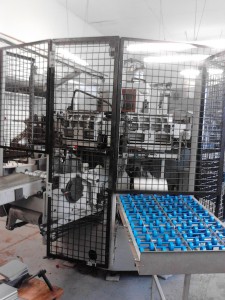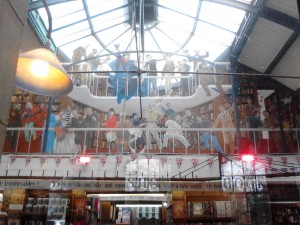
Blake Brooks, MLitt in Publishing Studies student, reports on London Book Fair and Digicon 2013:
It’s been an intense year of studying and interning, going from being a freshly graduated undergrad to hardcore postgrad, and all that energy and learning culminated in two events in April: The London Book Fair and the Interactive Scotland Digital Conference (Digicon).
Although as a Londoner the London Book Fair was a chance to go home, the trip was still predominantly about working, networking and seeing the publishing industry in practice. Still, even a lifelong Londoner like myself can underestimate journey time, and so at 9.30am on the Monday morning I went dashing into Earls Court trying to get to my first seminar. I only paused briefly to marvel at the stands that stretched out before me like a hundred tiny showrooms, a sea of metal squares with banners and photos all vying for attention.
Whilst I enjoyed the seminar, I felt somewhat disorientated and so decided to forgo my next intended one for a chance to walk around and familiarise myself. However that feeling of disorientation never went away. I found I largely spent my time trying not to crash into the marketing executive of HarperCollins, desperately attempting light hearted and jovial conversation with stern-faced and unamused stall-dwellers, and smiling with nervous hope at disinterested business people rushing from meeting to meeting with no interest in anyone with the word ‘student’ emblazoned across their badge.
A world away from the rush of the main fair, I did enjoy the seminars and I was even invited to partake in some meetings with my internship company Saraband, which were interesting, nerve-wracking, and brilliant. I felt like everyone was communicating in another language, but every now and then I caught familiar words or had a feeling I knew what they were really talking about, and I loved it when I had something I could contribute, though for the most part I preferred to listen.
I did however find it disheartening how little care was shown for students (theoretically the future of the publishing industry) and how hard it was to approach people, even at networking events. I’m not a wallflower but I really struggled, and some people were just downright rude when you did try. That’s also the feedback I’ve received relatively unanimously from the other Stirling students, too.
However the Fair itself is definitely worth going to; a great educational experience that is interesting and often enjoyable. I loved sitting with a glass of wine and chatting publishing with those I had connected with, I enjoyed live-tweeting in excess until my batteries died, I smiled as I played LBF bingo in my head and ticked ‘William Boyd’ off my list (but not a bin, which were few and far between).
The seminars were interesting, although I only made half of my intended ones as my feet hurt and my energy ran out as the days are long and tiring. The stalls were fascinating, especially seeing how some were so open and full of life like Penguin and Button Books, whilst others, like Canongate and Lonely Planet, built both literal and metaphorical walls around themselves. Many people at stalls encouraged conversation, others were all business and meetings. Overall I left with two business cards but fifty new twitter followers, a heavy heart but an enthused mind, and a sense that the publishing industry was not going to be quite as kind to me as I’d once thought – even though I also came out feeling like those that were kind were more than making it up for those who weren’t.
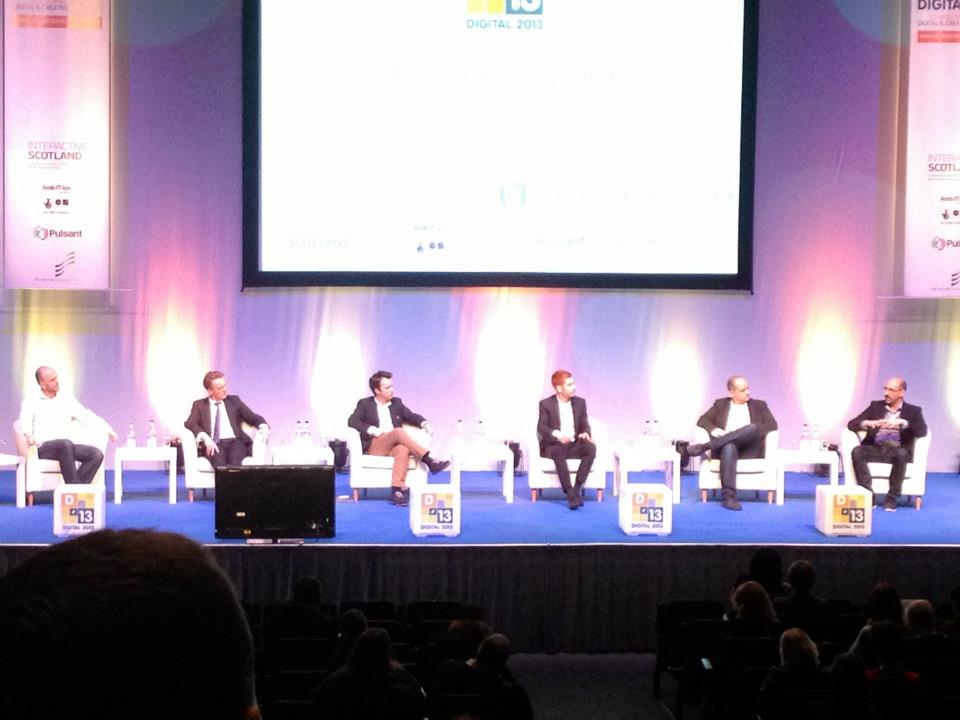
Digital Day was a totally different and utterly positive experience by comparison. I showed up expecting it to feel much like the London Book Fair, which, by this point, I’d reflected on as a worthwhile but disappointing experience. However, we were greeted in a small room by tea and breakfast rolls, surrounded by small stands that were open and welcoming, much more like a market than a fair.
This was a more casual, interesting and positive event and, as the main conference started, I was curious to see what the core of it was about. Digicon doesn’t quite specialise in publishing, although Pearson were there, telling us all about teaching our three-year-olds Mandarin using the iPad, and much of it does relate to the industry.
I tweeted everything and garnered numerous new followers, as I sat at the back of the conference room watching hundreds of faces lit up in the dark with the glow of tablets and phone. Everyone was excited, everything seemed fascinating, and best of all there were limitless supplies of tea. The afternoon seminars were even better, with one on ‘brand identity’ and one on ‘visibility and marketing’. The seminar leaders were funny, charismatic and confident, they led interesting discussions and imparted wisdom that felt worthy of writing down. When I came out my mind was abuzz with marketing ideas and I wandered around the stalls happily chatting with professionals who were open and friendly, undoing all the self-doubt I’d felt after LBF. The networking event was wonderful, I had a lovely time drinking free wine with Sara and Catriona (from Publishing Scotland and alumni of the course) whilst talking to numerous people. I didn’t feel awkward handing over my card, or taking anyone else’s, and my smile felt genuine this time. Although it’s perhaps not as necessary to go to Digicon I felt it was a great experience and perhaps more beneficial than LBF, especially if you’re interested in digital technologies.
I’ve come out of both events feeling that they were beneficial and I definitely got something out of both. I think the London Book Fair is an important event, it’s good if you are interested in publishing in general, but it is not a networking event as everyone is busy and students are largely superfluous. Still, the companies I did interact with; Cargo, Forlaget Hetland, Saraband, Freight, Button Books and Publishing Scotland; were all wonderful, open and kind.
Digicon is an optional addition to the publishing calendar, but a truly enjoyable experience and I think worth going to if you can afford it. You can reap the ticket cost back in food and drink easily (the entire day is catered) and the advice and guidance in the seminars was more useful and inspiring than anything I heard at London Book Fair.
However perhaps the best recommendation I could give is to say do it all. Both experiences were beneficial even if not totally positive, both were educational, both were enjoyable at times and all that I’ve learnt will help me in the future. so it’s worth it.
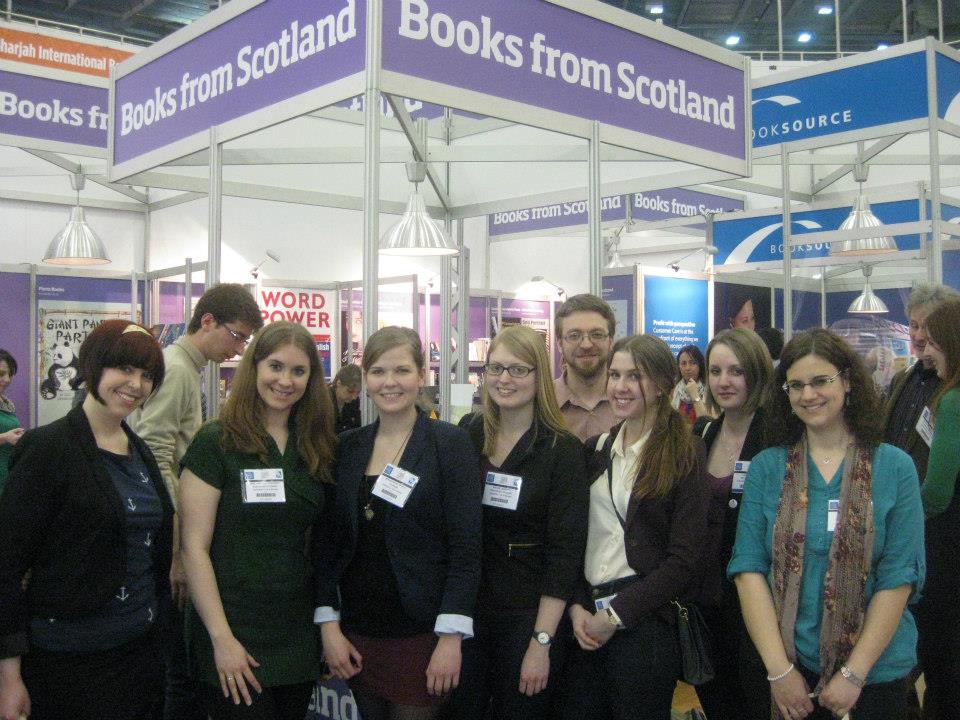
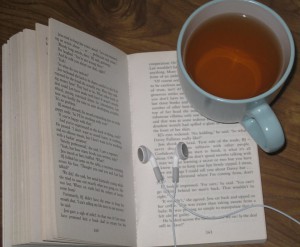 Writing about oneself is always difficult, especially when coupled with the idea of having to post it on the internet. There are too many considerations, especially for someone like myself who does not enjoy the spotlight. I suppose I should just “lay it out there” and go forward from that point.
Writing about oneself is always difficult, especially when coupled with the idea of having to post it on the internet. There are too many considerations, especially for someone like myself who does not enjoy the spotlight. I suppose I should just “lay it out there” and go forward from that point.